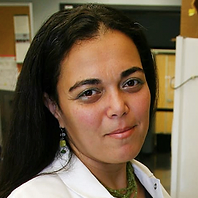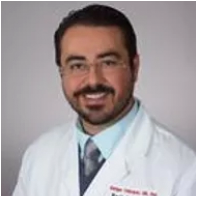Center for Optimization of Participant Engagement for Cancer Characterization (COPECC)
- Colorectal cancer
- Hispanics/Latinos
- University of Southern California
- Grant Number: U2C CA252971
- Contact
Building a foundation for access to health care innovation for cancer patients
University of Southern California
Colorectal cancer (CRC) is the second leading cause of cancer mortality in the United States. Moreover, significant gaps persist in the availability of molecular profiling data from cancer patient cohorts. A barrier to biomedical research studies is the lack of culturally appropriate approaches to engaging and involving communities for participation in research.
Building a foundation for access to health care innovation for Hispanic/Latino cancer patients
University of Southern California
Colorectal cancer (CRC) is the second leading cause of cancer mortality in the United States. Hispanic/Latino/a(x) (H/L) CRC patients tend to be diagnosed at a younger age and with higher stage, and it has also been reported that Mexican H/L in California have a higher proportion of young (<50 years of age) diagnoses compared to other H/L subgroups. Moreover, significant gaps persist in the availability of molecular profiling data from cancer patient cohorts, including significant limitations in data from H/L cancer cases. A barrier to biomedical research studies is the lack of culturally appropriate approaches to engaging and involving communities for participation in research.
To address these challenges and to identify solutions to these issues, we have created the Center for Optimization of Participant Engagement for Cancer Characterization (COPECC) at the University of Southern California in Los Angeles. The overarching goal of COPECC is to build a foundation for access to health care innovation for H/L cancer patients. Our center will perform among the largest and most comprehensive studies to characterize the molecular features of CRC in H/L, particularly those with early onset cancer. These data will help the scientific community best understand the mechanisms driving CRC in our H/L population. Importantly, we will concurrently develop and optimize culturally tailored methods to best engage our H/L patient population towards developing optimized models that can be distributed broadly to advance biomedical research studies.
Project Aims
- Engage H/L CRC patients using culturally tailored tools developed in collaboration with behavioral scientists, patient advocates, and Community Outreach and Engagement leaders.
- Comprehensively characterize the genomic tumor landscape and germline genetics of 500 H/L individuals with CRC to address the knowledge gap for this patient population, with focus on early onset colorectal cancer.
- Continuously optimize our tools for patient engagement and for delivery of genomic and genetic information, and develop and test novel risk communication strategies for delivering information through rigorous approaches, incorporating patient preferences and needs.
Leadership

John Carpten, PhD

Heinz-Josef Lenz, MD

Mariana Stern, PhD

David Craig, PhD

Lourdes Baezconde-Garbanati, PhD
Additional Team Members

Sandra Algaze, MD

Julie Culver, MS

James Gauderman, PhD

Natalia Gutierrez, MS

Daisy Hernandez, MS

Syma Iqbal, MD

Caryn Lerman, PhD

Juan Pablo Lewinger, PhD

Ashley Norigea

Charite Ricker, MS

Janet Rodriguez, MPH

Joel Sanchez Mendez, MBBS MBA

Bodour Salhia, PhD
Elena Taylor-Munoz

Jennifer Tsui, MD

Enrique Velazquez Villareal, MD
